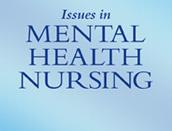The media have long since published articles and aired adverts which have been discriminating and predujiced towards the mentally ill, these have frequently been negative and alarming images that have been designed to shock.
These stories are usually always based on hearsay with frightening and shocking context, and no input from the person or persons involved.
These articles cannot fail to influence the public's attitudes, beliefs fears and opinions towards mental health sufferers and mental health in general, usually not in a positive way.
In a MORI poll it was found that many people would be reluctant to admit they had been diagnosed mentally ill, people don't want to know they or their family may be at risk; they don't want to contemplate this idea.
NIMBY (not in my back yard) is another way of explaining this, as in people diagnosed HIV positive or newly released prisoners, some people see themselves as superior, immune to such stigmatising and 'deviant conditions'.
They build barriers, and are happy to help people with mental health problems but not if they are living in close proximity.
Mental health service users have a hard enough time of things, trying to cope with their illness, without having to face more stigma and predujice from their neighbours and their community.
Roger Gomm wrote about the concept of deviancy amplication and how this can punish and discriminate against users, not only regarding them as mad and bad in society, but making them believe it too. Professionals who are there to help in their hour of need, dampen any spirit they have left with drugs producing disabling side effects. This institionalizes them further, leaving them with low self-esteem, and less hope of returning to their former routine. If drugs were not nearly always the answer, and were treated with...


